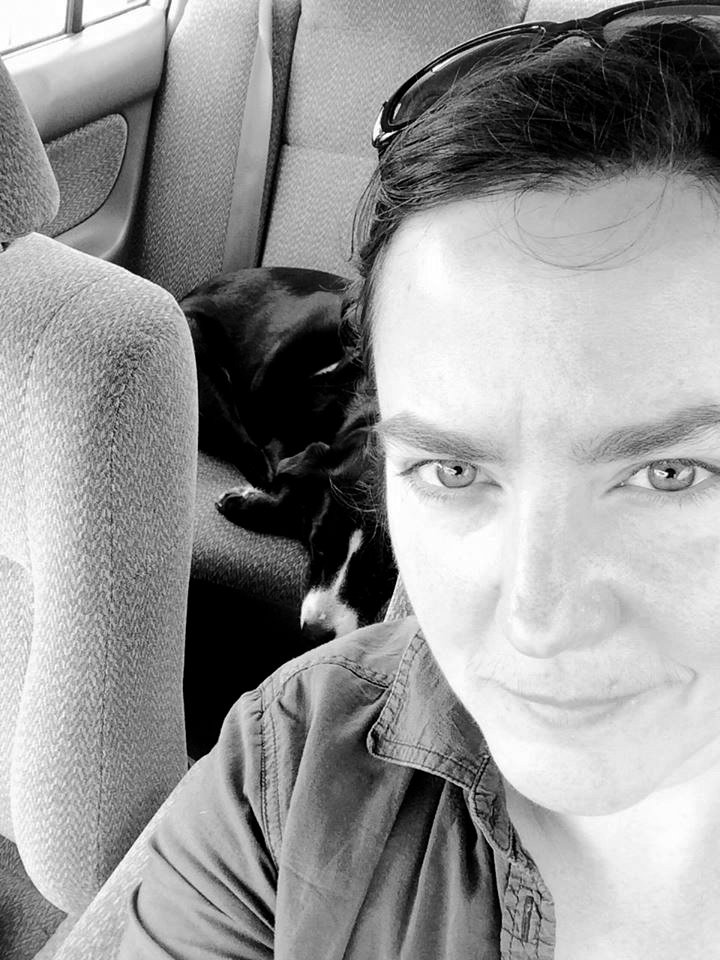After Hours. Darrell Epp. Mosaic Press. Oakville, Ontario. 2016.
The best poems in Darrell Epp's After Hours remind you of the first time you got stoned. The first time you felt dangerous.
You know how you felt the first time the veil came down. The first time you saw behind the wizard's screen. Welcome to a new Oz.
Epp has just the right amount of disgruntled dissatisfaction to fill these poems with the proper vigour. Hope doesn't come easily but it is buried in the seams of After Hours. Maybe under an old car with a mad dog chained to the bumper, the hard-packed soil oil stained.
The Mongol Invasions
i have as of late acquired the ability to
turn myself into fictional characters,
it's an old man in a rent-controlled
basement today--no one suspects
he's really an eccentric billionaire
with a thousand years of memories.
i prowl the malls, laugh at the
baffled cluelessness of the
bargain-hunting taxpayers.
i seem to recall having
magic powers, a dozen
wives and x-ray eyes;
watching atoms knit
themselves into pairs,
then clans, then faces.
maybe a face will say
hi to me today, maybe
i'll make a new friend
who truly understands:
we'll trade war stories
about missing dorothee
and rampaging across
asia with genghis khan.
...
Today's book of poetry positively romped through Darrell Epp world. I want to tell you that Epp made me think of Bukowski but in truth Epp is not a Bukowski cat. So then I'm thinking somewhere between Johnny Rivers melancholy and Len Gasparini rant and maybe with a modernized Milton Acorn thrown in there for a touch of righteous rage.
How silly to be looking for comparisons when Epp can so clearly stand on his own. These quick and sharp narratives cut clean as a razor. Epp has found a voice just below the bellow of flat out rage and is comfortable roaming that dangerous territory. It certainly makes for kick-ass poems.
Our morning read was like watching young kids with their first fireworks, setting them off one at a time.
Contraindications
an unpolluted pacific
a garden of eden sky
the man in the moon
a star's molten heart
a volcano's teardrop
put one of the above under your
tongue every 4 hours or as needed.
do not mix with food, do not answer
the phone, and if anybody asks, tell
them you haven't seen me, tell them
you haven't seen me for months.
...
After Hours is Darrell Epp's second book of poetry. Today's book of poetry didn't have to go far to find his first book, Imaginary Maps (Signature Editions, 2009), we have a copy on shelf of "coming attractions." Today's book of poetry will be looking at Imaginary Maps in the not too distant future.
When Milo, our head tech, put Imaginary Maps down on my desk I had an immediate flashback to the first time I read it. Cue big smile. Epp is a quick study because he allows the reader immediate entrance to his chaotic world, seasons it with kindness.
The Robert Crumb type front cover of After Hours has a Bukowski type "Hank" character with angel's wings sitting with other barflies as eternity sneaks up on them. Rarely are covers so apropos.
Telephone Game
the message ran around the world; by the
time it came back to me i had a wooden
leg and lived in a castle made of bone.
my pet unicorn could sing like a bird.
i was a wanted man, one step ahead
of irs, kgb and other sinister acronyms.
i beat superman at arm-wrestling and
punished all who loved me. love's a
word poets use as a crutch, like 'very'
and 'and.' funny how love brought out
my inner martyr: a lesser man would
have broke both your arms. what was
it, that thing you thought you wanted?
sorry. but don't look at me, look at the
universe, downright peacock-y in its
nightly burlesque: supernovae like
popped corks; the milky way,
waving her spiral arms like shiva
herself; the gravity that pulled me
to you, indiscriminate, affirmative, it
felt like heaven, or the next best thing.
...
Maybe After Hours is an entirely coincidental title pick but Today's book of poetry is convinced Epp is giving a big nod to ol' Martin Scorsese's flick of the same name, After Hours (1985). In the episodic flick, think of individual poems, the hero/loser is entirely over his head from one late night misadventure to another. The character presents as though he were on top of things, as though he were in control whereas the movie is one continuous lesson in how he controls nothing at all.
Darrell Epp's After Hours discombobulates the reader in much the same way. It is a great ride. Buckle up.

Darrell Epp
ABOUT THE AUTHOR
Darrell Epp’s poetry has appeared in dozens of magazines around the world including Maisonneuve, Poetry Ireland, Sub-Terrain, and The Saranac Review. His previous poetry collection was entitled Imaginary Maps (2009). He lives in Hamilton, Ontario.
BLURBS
“In Epp’s second collection of poems, he explores diverse themes and imagery firmly rooted against a gritty postmodern backdrop.”
– The Hamilton Spectator
“A fun, sly jumble of poems that often tackle weighty issues”
– Jonathan Ball, Winnipeg Free Press
– Phillip Crymble, Hamilton Arts & Letters
“I enjoyed these poems immensely.”
– William Peter Blatty, author of The Exorcist
“Lucid, raw and honest poems, refrains that slide with grace and wit from the particular to the general, from past to present and back again, authentic and absorbing.”
– novelist and screenwriter Rudy Wurlitzer (Pat Garrett and Billy the Kid and Little Buddha)
“If you ever get caught in the subway between stations, try to sit beside a guy like the guy who wrote these poems.”
– novelist David Gilmour (The Film Club, Back On Tuesday)
– novelist Samuel Thomas Martin (This Ramshackle Tabernacle, A Blessed Snarl)
mosaic-press.com
588
DISCLAIMERS
Poems cited here are assumed to be under copyright by the poet and/or publisher. They are shown here for publicity and review purposes. For any other kind of re-use of these poems, please contact the listed publishers for permission.
We here at TBOP are technically deficient and rely on our bashful Milo to fix everything. We received notice from Google that we were using "cookies"
and that for our readers in Europe there had to be notification of the use of those "cookies. Please be aware that TBOP may employ the use of some "cookies" (whatever they are) and you should take that into consideration.



